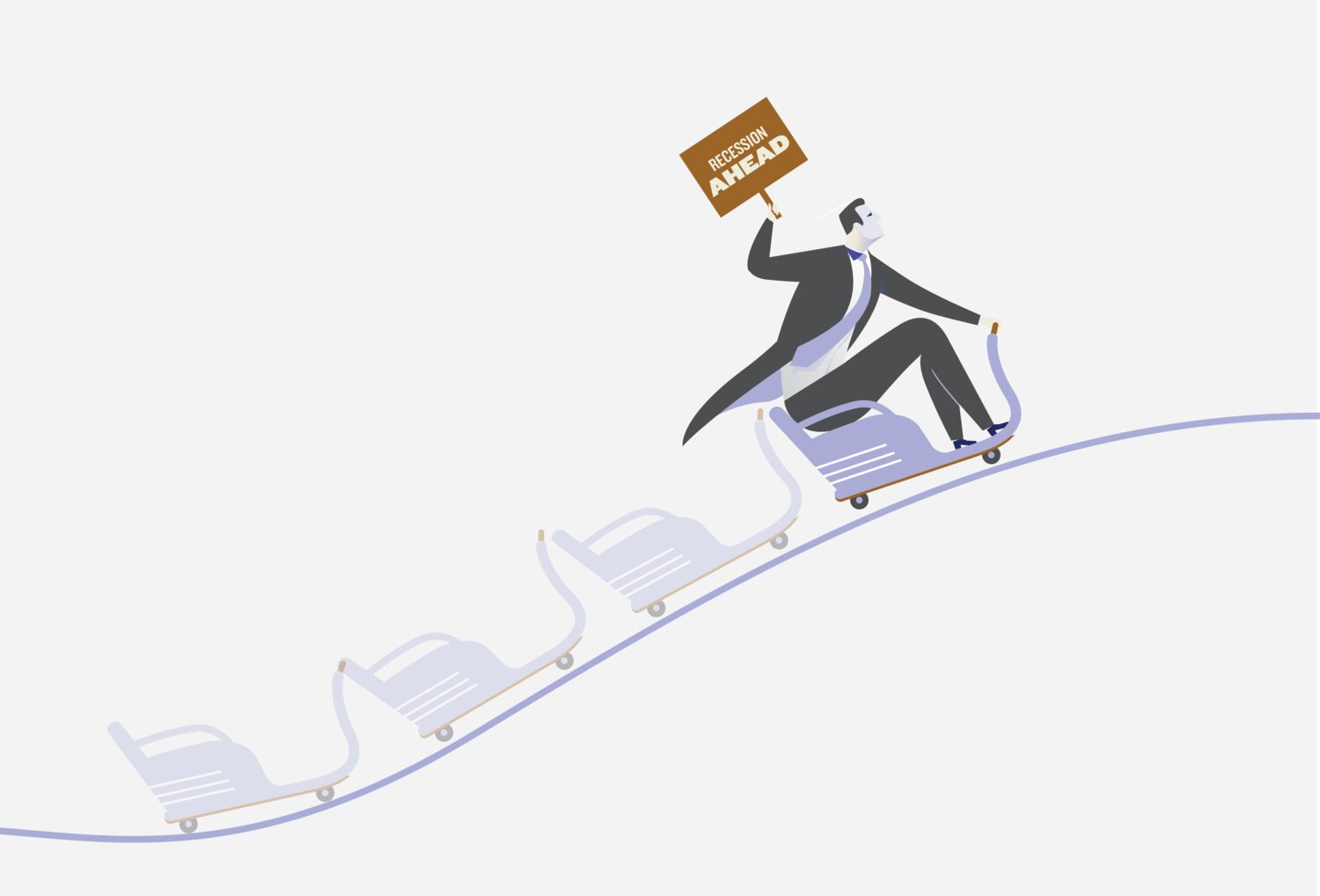YOUR BUSINESS AUTHORITY
Springfield, MO
YOUR BUSINESS AUTHORITY
Springfield, MO

As the global economy continues its roller-coaster ride, one question looms large on many business leaders’ minds: Why hasn’t the recession happened yet?
In Springfield Business Journal’s 2023 Economic Growth Survey, most respondents, nearly 40%, think the recession is slated to happen by the end of the year, while 28% remain uncertain, which consequently impacts business and consumer confidence. Yet, despite the prevailing uncertainty plus a growing list of economic challenges, businesses are thriving and looking to expand, with 56% of respondents saying their net income is on the rise this year.
“Everybody’s doing well, but they’re not feeling good about it,” says Jason Flores, executive vice president and chief investment officer at Central Trust Co. “A lot of what we’re seeing here is reflected nationally.”
Despite a strong 3.6% unemployment rate in the United States as of June and a seemingly robust economy, Flores agrees that confidence is at a low point. He attributes it to a host of unique challenges experienced in recent years, such as inflation, the lingering effects of the COVID-19 pandemic, geopolitical tensions like the war in Ukraine, and supply chain disruptions.
Flores adds that one significant factor that has played a role in postponing the recession is an inverted yield curve – when longer-term bonds have a lower yield than short-term debt instruments, according to Investopedia.
With the anticipation of rising interest rates due to inflation, Flores says many companies preemptively borrowed money ahead of the hikes at low long-term rates. But now they are sitting on cash that has a higher yield than their loans.
“This strategic move might have helped stave off the impending downturn to a certain extent,” he says.
Flores emphasizes that proactive cost-cutting measures, along with the implementation of artificial intelligence, have contributed to businesses staying ahead of the curve. In addition, consumer resilience has played a vital role.
“Wages did increase, and now that we have inflation going down, peoples’ wages remain high, so many feel wealthier this year than last year,” Flores says, adding that the job market continues to be favorable, with more job openings than job seekers.
However, he adds that he is paying close attention to job openings as a key to when the recession may occur.
“Currently, there are 1.6 jobs available for every (person) looking,” Flores says. “If the ratio drops, whether it’s a big drop or a continuous draw down in the openings, it will be a sign to me that a recession is getting closer. Companies stop hiring, and then they start cutting.”
In addition, Flores points to the persistence of high-interest rates as a significant concern.
“The Federal Reserve is pulling liquidity from the market, credit is tight and it’s getting hard to get a loan,” Flores says. “Banks are having to defend their balance sheets right now.”
Approximately 43% of business leaders say in the SBJ Economic Growth Survey that access to credit has remained about the same compared to a year ago, while 33% say it’s been harder to access. A majority of respondents say they aren’t looking to raise capital in the upcoming year, but 22% of those who are plan to access funding primarily through banks.
In light of a pending recession, business leaders are prioritizing several strategic goals in SBJ’s survey. Expanding to new markets, developing the next generation of leaders and expanding the use of new technology are cited as the top three strategies for growth, and Flores agrees.
“Keep an eye on AI,” he recommends, adding tech advances can help with scalability and optimize costs.
From a banking perspective, Flores also recommends considering adjustable-rate financing and reviewing corporate documents to help reduce financial burdens. He says this wasn’t advice he would have given even a few years ago.
“Yes, rates could go up more, but we are likely near a peak, and if they are cut, your interest expense will reduce with adjustable rate loans,” he says.
He notes if rates go up too high, that can break the economy.
Lastly, Flores suggests businesses automate, look into processes, not over-deliver, and pay attention to costs: “I’d say, challenge everything.”
This article is brought to you by Central Bank and Central Trust Co.
Led by a team of gardening experts, Harvest Grow Supply offers know-how alongside more than a thousand products.